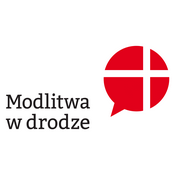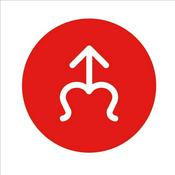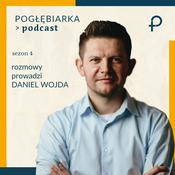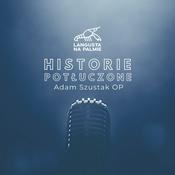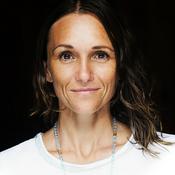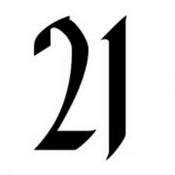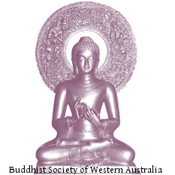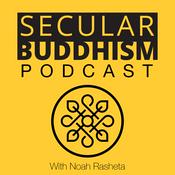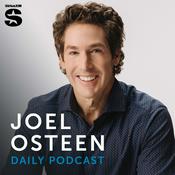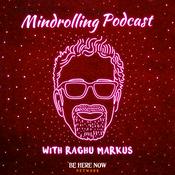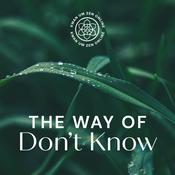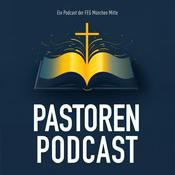264 odcinków
- What is truth? In a special edition of The Moral Maze, we discuss perhaps the most significant question in all of human thought. It sits at the foundation of how we understand reality, and how we communicate and behave towards one another.
The obvious answer is that the strongest possible way to arrive at the truth in a shifting world of AI and authoritarian control is through a commitment to empirical data and provable facts. However, this can only ever get us so far because truth is always told from somewhere. Even objective facts can be curated from one perspective. Stories about ourselves and the world have been necessary, alongside partial data, to keep the social order and to prevent us from being overwhelmed. The historian uses limited sources to tell a story about our past. Language constrains how we articulate who we are, what we do and how we think and feel. Where science falters in expanding the horizons of truth, artists and theologians step in with their own insights that truth can be discovered through poetry and mysticism. That’s before the postmodernists come along and state that what we think of as truth is constructed rather than discovered; that the ‘truth’ we seek doesn’t really exist; that it’s all a fiction to give our lives meaning and purpose.
Chair: Michael Buerk
Panel: Mona Siddiqui, Giles Fraser, Anne McElvoy and Ash Sarkar
Witnesses: Charlie Beckett, Fay Bound-Alberti, Mark Vernon and Hilary Lawson
Producer: Dan Tierney. - Tommy Robinson's carol concert claimed to be "putting Christ back into Christmas". Church of England Bishops quickly pointed out that Christ never went away and warned about Christmas becoming another proxy in the culture wars. Many of Robinson's supporters are turning to Christianity. Some have openly stated that the Christian faith is a cultural ballast, representing British freedoms and values, and a defence against a perceived threat posed by Islam and immigrants. For others, Christianity and Christmas is being appropriated in the most un-Christian way, the Holy Family were persecuted refugees, and a central message of Jesus was one of radical hospitality for the stranger.
This year, Christmas comes at the time of a wider debate about so-called "civilizational erasure" in Europe, following the publication of America's National Security Strategy. It boldly states that, within a few decades, NATO members will be "majority non-European", encourages the resistance - and praises the influence - of "patriotic" European parties, including Alternative fur Deutschland (AfD) in Germany, a far-right anti-immigration party.
Is a full-throated defence of Christmas a sign of strength or weakness? What's the bigger threat to Europe: "cultural erasure", or far-right populism?
Chair: Michael Buerk
Panel: Giles Fraser, Inaya Folarin-Iman, Anne McElvoy and Matthew Taylor
Witnesses: Chris Wickland, Krish Kandiah, Eric Kaufmann and Adrian Pabst
Producer: Dan Tierney. - As Australia begins its pioneering social media ban for under-16s, governments around the world will be watching closely. The move, which represents a significant challenge to Big Tech's dominance, aims to protect children from online harms like cyberbullying, grooming, exposure to violent/misogynistic content, as well as anxiety and depression linked to excessive screen time and addictive platform designs. Should other countries, including the UK, follow suit?
Evidence suggests social media ‘doom scrolling’ changes our brainwave activity, affecting attention spans (children are reading less than in the past), altering reward pathways with dopamine ‘hits’, and influencing emotional regulation and social processing (combined with a decline in outdoor play). Critics argue a blanket social media ban treats all under-16s as a homogeneous risk group, denying them moral agency, rather than distinguishing between responsible and problematic use. Others fear a loss of mainstream online community spaces could lead to further isolation and push some teenagers toward more dangerous platforms or behaviours.
Should children be banned from social media?
Chair: Michael Buerk
Panel: Carmody Grey, Mona Siddiqui, Giles Fraser and Anne McElvoy
Witnesses: Jennifer Powers, Timandra Harkness, James Williams and Tony D Sampson.
Producer: Dan Tierney - The jury trial has been around for almost 1,000 years. Magna Carta, in 1215, enshrined the principle that “No free man shall be... imprisoned… except by the lawful judgement of his peers.” That could be about to change, under the proposal by the Justice Secretary, David Lammy, to restrict jury trials to the most serious cases. The aim is to deal with an unprecedented backlog in the courts. Britain, thus far, has been in the minority: most countries around the world rely on judges – not juries – to evaluate the evidence, assess guilt, and deliver justice.
Those in favour of juries see them as a moral institution, putting justice in the hands of randomly-selected ordinary people, rather than those of the state or a legal elite, and so reducing the chance of a biased or blinkered verdict. Opponents argue that juries can be obstacles to justice, not immune to prejudiced decisions, and lacking the expertise to weigh up the evidence in complex cases.
While some see the jury system as a redundant relic of the past, others believe the deliberative democratic principle it embodies should be extended to other areas of public life in innovative ways. Should we, as some suggest, replace the House of Lords with a second chamber full of randomly-selected representative voters? Those in favour of citizen juries in politics, as well as in the governance of public institutions, believe they can provide greater democratic legitimacy and lead to better decisions, through a combination of lived experience and expert guidance. Those against citizen juries say they undermine a fundamental democratic principle: one person, one vote.
Chair: Michael Buerk
Panel: Matthew Taylor, Inaya Folarin-Iman, Tim Stanley and Mona Siddiqui
Witnesses: Sir Simon Jenkins, Fiona Rutherford, Anna Coote and Tom Simpson
Producer: Dan Tierney. - The Dutch historian Rutger Bregman, whose BBC Reith Lectures start this week, is calling for a moral revolution to change our societies for the better, charting how small groups of committed people – abolitionists, suffragettes, and temperance activists – have brought about positive social change.
Politics, Bregman argues, is in trouble in an age of apathy and backsliding democracy: “The moral rot runs deep across elite institutions of every stripe”, he says, “if the right is defined by its shameless corruption, then liberals answer with a paralyzing cowardice”.
So where might our moral salvation come? What are the deep values that underpin our contrasting political worldviews – left and right – and which should we look to prioritise now? Does any part of the political spectrum have the greatest claim to morality?
Chair: Michael Buerk
Panel: Matthew Taylor, James Orr, Mona Siddiqui and Tim Stanley.
Witnesses: Tim Montgomerie, Eleanor Penny, Joanna Williams, Paul Mason
Producer: Dan Tierney.
Więcej Religia i Duchowość podcastów
Trendy w podcaście Religia i Duchowość
O Moral Maze
Combative, provocative and engaging live debate examining the moral issues behind one of the week's news stories. #moralmaze
Strona internetowa podcastuSłuchaj Moral Maze, Czytamy Pismo Święte – Stary Testament i wielu innych podcastów z całego świata dzięki aplikacji radio.pl
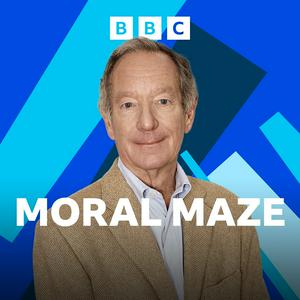
Uzyskaj bezpłatną aplikację radio.pl
- Stacje i podcasty do zakładek
- Strumieniuj przez Wi-Fi lub Bluetooth
- Obsługuje Carplay & Android Auto
- Jeszcze więcej funkcjonalności
Uzyskaj bezpłatną aplikację radio.pl
- Stacje i podcasty do zakładek
- Strumieniuj przez Wi-Fi lub Bluetooth
- Obsługuje Carplay & Android Auto
- Jeszcze więcej funkcjonalności


Moral Maze
Zeskanuj kod,
pobierz aplikację,
zacznij słuchać.
pobierz aplikację,
zacznij słuchać.








